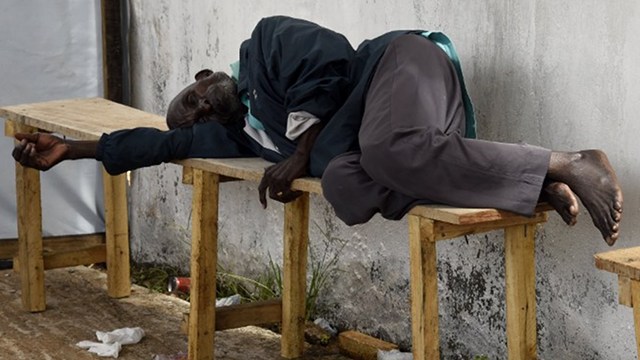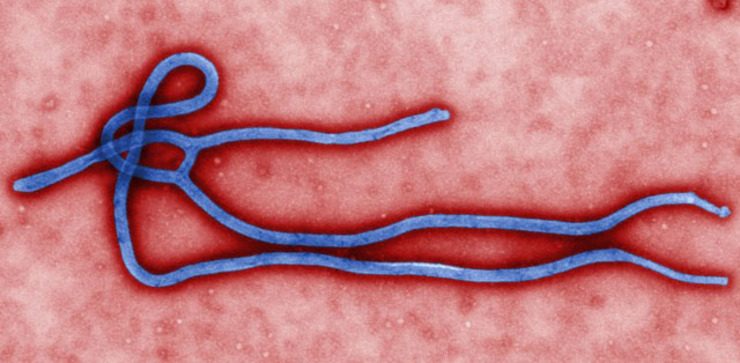SUMMARY
This is AI generated summarization, which may have errors. For context, always refer to the full article.

UNITED NATIONS – If Cuba can send health workers to help fight Ebola in West Africa, can the Philippines do it, too?
The United Nations acknowledged the safety concerns of member states like the Philippines, which have figured into the debate of whether or not to send health workers to help stem the disease in West Africa.
The Philippines said it will decide this week on the request of the US and the UK to send health workers to the hardest-hit Ebola countries, where the UN lamented a shortage of medical staff to operate treatment centers. (READ: Aquino: Ebola ‘paramount concern’ due to OFWs)
Rappler asked UN Deputy Spokesperson Farhan Haq about the statements of medical associations in the Philippines that the country should first focus on strengthening its health systems against the entry of Ebola before sending doctors and nurses to Guinea, Liberia and Sierra Leone.
“We need to make sure appropriate precautions are in place and the Mission is working on that very topic,” Haq said, referring to the Ghana-based UN Mission for Ebola Emergency Response (UNMEER) tasked to lead the global response to Ebola.
Speaking at a press briefing at the UN Headquarters in New York on Wednesday, October 15, Haq responded to concerns that sending health workers to West Africa might cause the spread of Ebola to their home countries like the Philippines.
Haq cited the case of Cuba, a small island nation of 11 million people, which sent 165 health workers to Sierra Leone. Cuba earned global praise for “punching above its weight” in responding to the appeal for aid.
“That’s a very, very valuable contribution. If more health care workers can come in, that can help turn this disease around,” Haq said.
“One of the purposes of the UN Mission on the ground is precisely that: to make sure that the conditions can be set to make sure that more assistance can be brought in, both in terms of material assets but also in people,” he added.
The UN though admitted that deploying health workers comes with risks, with the world body mourning the second death of an employee due to Ebola. The 56-year-old Sudanese doctor died Monday after working as a UN volunteer in Liberia. The staff member was evacuated to Germany last week for treatment.
“That underscores the dangers that are posed to the people on the frontlines. We’re trying our very best to make sure the disease is contained but we have to abide by very scrupulous procedures because of the nature of how it spreads,” Haq said.
Philippine Health Secretary Enrique Ona said Manila is considering sending health workers to West Africa because it has many medical professionals, and over 20 volunteers expressed interest. Home to 10 million migrant workers, the Philippines is concerned about its citizens contracting Ebola and spreading it in the country.
The worst Ebola outbreak in history led to the deaths of 4,024 people, and 8,376 cases, according to the World Health Organization (WHO). (READ: Fast Facts: Ebola)
From West Africa, the disease reached the United States and Spain. The developed countries are also struggling with protocols to contain its spread as seen in the cases of health workers infected after treating patients who came from abroad.
UN Secretary-General Ban Ki-Moon and his officials have called for a “20-fold” increase in resources to battle Ebola, stressing that the epidemic will only stop if it is defeated at its source, in West Africa.
Ebola has gone beyond being a health crisis, endangering food security, undermining economic growth, closing down schools, and breaking apart families in the worst affected countries. These countries have weak health systems after emerging from decades of conflict.
Yet the international community has been slow to respond. Despite the recent uptick in aid, the UN said last week that financial aid fell short of its $1 billion appeal, with only 25% of the amount pledged so far.
‘Accelerate response dramatically’
US President Barack Obama and other international leaders on Wednesday renewed their call for the world to do more on Ebola.
The UN Security Council issued a statement saying that the international community “has failed to date to adequately address the magnitude of the outbreak and its effects.”
“They urged all Member States, and bilateral partners and multilateral organizations, to accelerate and dramatically expand the provision of resources and financial and material assistance, including mobile laboratories; field hospitals; dedicated and trained clinical personnel and services in Ebola Treatment Units and isolation units,” the statement read.
The Council though also acknowledged safety concerns, stressing the importance of arrangements like medical evacuation capacities and treatment and transport provisions “to facilitate the immediate and unhindered deployment of health and humanitarian relief workers in the affected countries.”
The statement comes a day after UNMEER Head Anthony Banbury briefed the Council that Ebola “got a head start on us and it is winning the race …. We either stop Ebola now or we face an entirely unprecedented situation for which we do not have a plan.”
To illustrate the gravity of the situation, Banbury said that 7,000 beds are needed by December when the UN expects to have 10,000 cases of Ebola a week but he estimated that only 4,300 beds will be available. Of the 500 burial teams required, only 50 are on the ground.
Obama discusses Ebola
Via a videoconference call, Obama urged his counterparts in Britain, France, Germany and Italy to “make a more significant” commitment against Ebola.
The European Union will meet in Brussels on Thursday to possibly discuss sending troops to West Africa like the US did.
Obama cancelled a trip to a fund-raiser and campaign rally on Wednesday to meet top Cabinet members on his own government’s response to Ebola. The meeting comes after a second health care worker in Dallas tested positive for Ebola after caring for patient Thomas Eric Duncan, who died on October 8.
“The president does believe that we need to see more from the international community. The stakes are high. And we need to see a more significant commitment of resources from countries around the world,” the White House said. – Rappler.com
Rappler multimedia reporter Ayee Macaraig is a 2014 fellow of the Dag Hammarskjöld Fund for Journalists. She is in New York to cover the UN General Assembly, foreign policy, diplomacy, and world events.
Add a comment
How does this make you feel?

There are no comments yet. Add your comment to start the conversation.